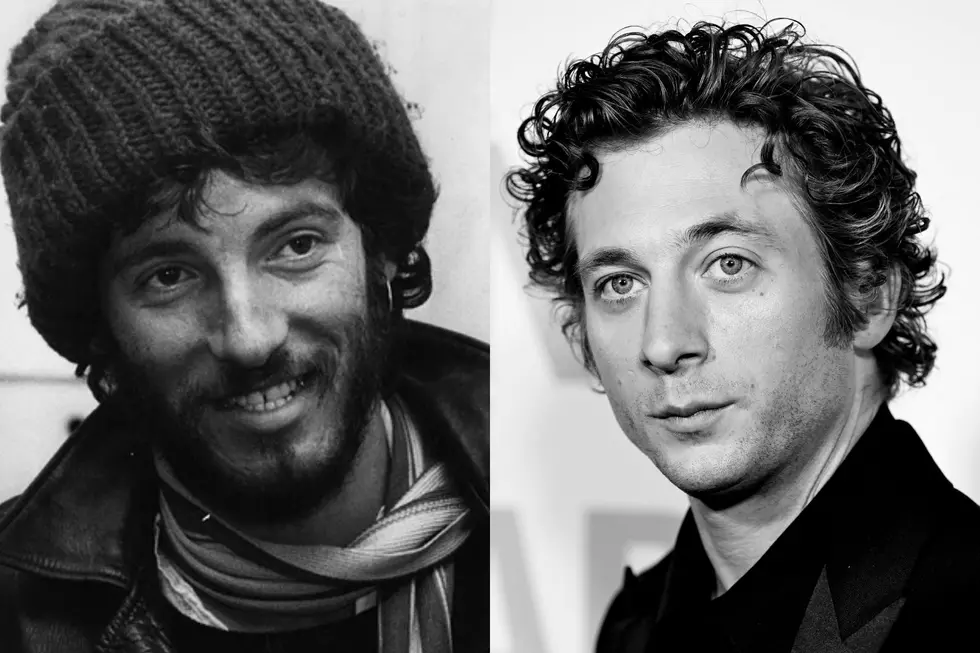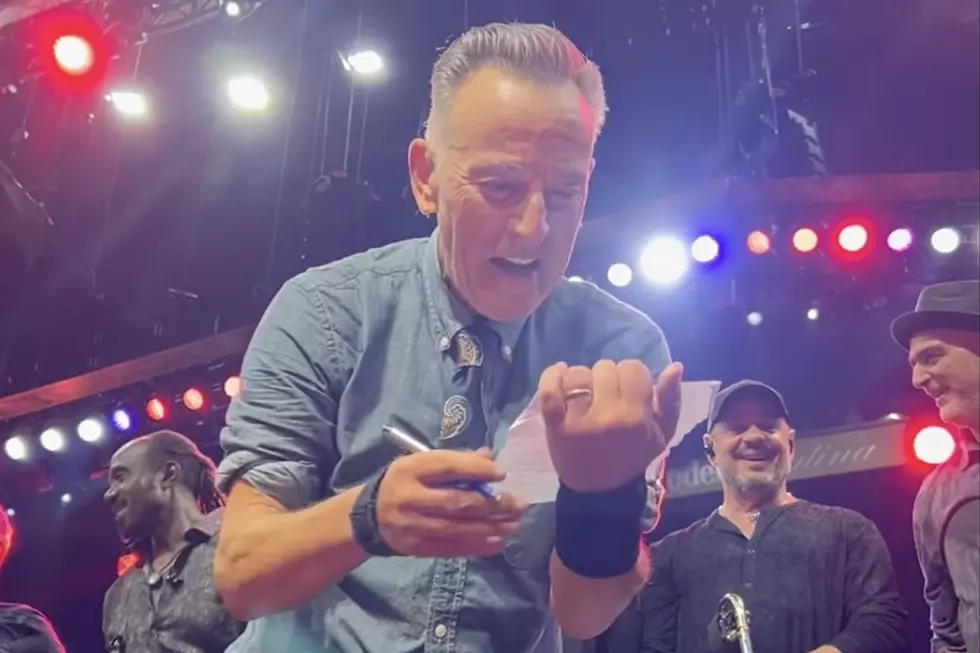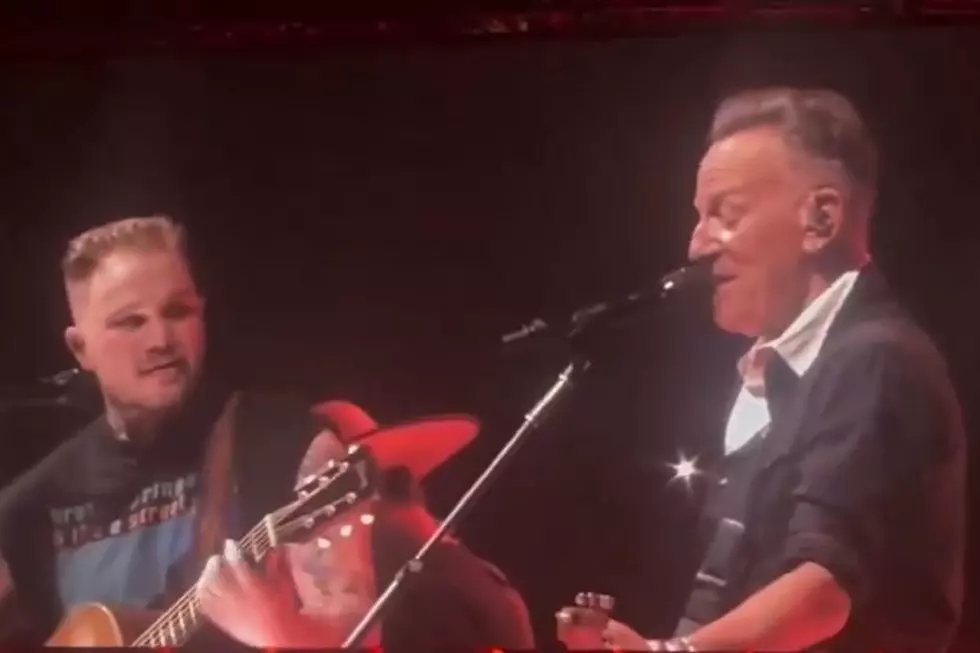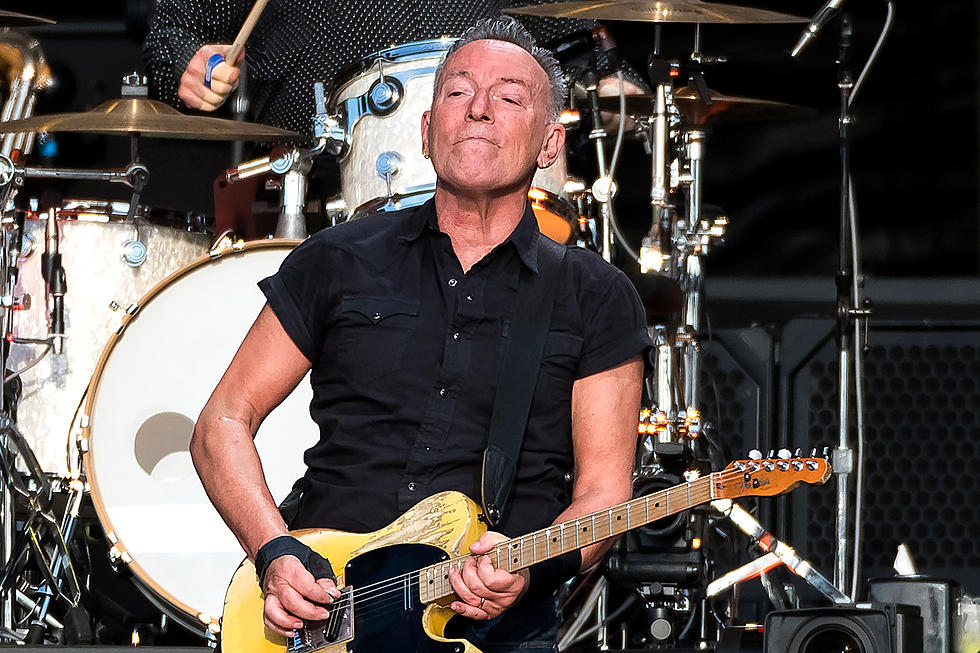
When Jon Landau Saw ‘Rock ‘n’ Roll Future’ in Bruce Springsteen
We’ve all been to rock concerts that have changed our lives. However, it’s rare that a show affects the life of an attendee, which, in turn, changes the fortunes of the performer. That’s what happened on May 9, 1974, when Jon Landau went to see Bruce Springsteen at the Harvard Square Theater in Cambridge, Mass.
At the time, Landau was a critic, but he wanted more. His college band had gone nowhere, and he had parlayed his friendship with Atlantic Records co-head Jerry Wexler into trying his hand at producing a couple of their acts. But his first effort, the MC5’s Back in the U.S.A., flopped and his attempt at producing the J. Geils Band’s debut ended before the album was completed.
Worse, music had lost a lot of its appeal for him. Landau had never been a fan of the psychedelic scene (he had famously trashed Jimi Hendrix and Cream in Rolling Stone) and even the majority of the newer music he did like was quickly digested and stuck back on the shelves to gather dust. He longed for the days when he would play the latest singles by the Byrds or Otis Redding over and over again, with each spin bringing something new. But apart from Neil Young, Joni Mitchell and Stevie Wonder, not much was working.
All of this was weighing on him as his 27th birthday approached. He was married and had just bought a house. All of the trappings of adult middle-class life beckoned, and the promise of everlasting youth that the rock 'n’ roll of the '50s and ‘60s offered was turning out to be a lie for Landau.
Then he walked into the Harvard Square Theater to see Springsteen.
The two had met in April outside Charlie’s Place, a bar in Cambridge where the band was playing that night. According to Peter Ames Carlin’s book, Bruce, Springsteen was reading a review of his second album, The Wild, the Innocent and the E Street Shuffle, that was posted on the club’s wall. Landau introduced himself as the author of the piece and they struck up a friendship.
A month later, Springsteen was back in Cambridge opening for Bonnie Raitt. They did two shows that night, with Landau catching the 10PM set. No bootleg from the later performance has surfaced, but there is a tape of the early show. The eight-song, 68-minute set is a very good performance. Its mixture of rock, soul, folk and jazz was not dissimilar from what Van Morrison was doing at the time, though it was looser, funkier and far more celebratory. Epics like "New York City Serenade" and "Kitty’s Back" sit alongside verbose bursts of energy like "Does This Bus Stop at 82nd Street" and "It’s Hard to Be a Saint in the City." And there’s an out-of-nowhere cover of Patti LaBelle and Her Blue Belles’ 1962 hit "I Sold My Heart to the Junkman."
With 40 years of hindsight into how Springsteen’s concerts would change over the years as his material – and the E Street Band, which then boasted only five other musicians – evolved, it sounds mostly like a band throwing everything they knew up in the air. But one can hear how, during a particularly stilted time for rock, Landau could be blown away.
Two weeks later, writing in the May 22 edition of Boston’s The Real Paper, he described all the anxiety he had been experiencing and how it had all gone away by the time Springsteen left the stage.
I saw my rock 'n' roll past flash before my eyes. And I saw something else: I saw rock and roll future and its name is Bruce Springsteen. And on a night when I needed to feel young, he made me feel like I was hearing music for the very first time.
Landau has often been misquoted as calling Springsteen “rock n’ roll’s future” or “the future of rock n’ roll” instead of what he actually said: “rock 'n' roll future.” It may not seem like much, but there is a difference. Rather than unequivocally declare that Springsteen was going to be the Next Big Thing, he meant that Springsteen had absorbed all of the great rock, folk and soul of the previous 20 years and turned it into something fresh for a new generation. Later, he goes into greater detail about what made Springsteen unique among his peers.
Springsteen does it all. He is a rock 'n' roll punk, a Latin street poet, a ballet dancer, an actor, a joker, bar band leader, hot-shit rhythm guitar player, extraordinary singer, and a truly great rock 'n' roll composer. He leads a band like he has been doing it forever. I racked my brains but simply can’t think of a white artist who does so many things so superbly.
Landau singled out "The E Street Shuffle" and "For You" – both cast in radically different arrangements from their recorded versions – as being highlights. But he also says that he heard three new songs, including one “with a ‘Telstar’ guitar introduction and an Eddie Cochran rhythm pattern.” According to Brucebase, this may have been the first-ever performance of "Born to Run."
Ever wary of hype, especially after two well-reviewed but poor-selling albums, Springsteen didn’t see how the article was going to help. As he told NME, “I [was] just getting over the [New Bob] Dylan thing, and I’m sitting home thinking thank God people seem to be letting that lie go, and phwoooeee! ‘I have seen.’ No! It can’t be.” Still, his label had the pull-quotes they were looking for, and CBS built a campaign centered around Landau’s words as he went into the studio to make his third album.
But there was something in Landau’s other piece, the review of The Wild, the Innocent and the E Street Shuffle, that intrigued Springsteen. Landau had criticized the record’s thin production, and he called on his new friend to get advice on how to get the sounds he heard in his head onto tape. Although Landau’s track record behind the board had been less-than-stellar, he nonetheless understood the process of making records better than Springsteen and his manager-producer, Mike Appel. On Landau’s suggestion, they switched from 914 Studios in upstate New York to the Record Plant in Manhattan. He sat in on the sessions and became a valuable sounding board, offering his advice on everything and rising to the level of co-producer.
Released in August 1975, Born to Run became the artistic and commercial breakthrough Springsteen had deserved. But it came with a price. The contract he had signed with Appel was heavily weighted in his manager's favor. Springsteen sued to dissolve the partnership, and Appel responded with a countersuit and an injunction preventing him from recording with anybody but him. In May 1977, the two parties had reached a settlement, and Landau became Springsteen's new manager and producer.
Landau's influence on Springsteen extended far beyond the studio and the office. He fed his charge a diet of classic American literature, movies (mostly Westerns and film noir) and country music – essentially giving him the education he eschewed in his youth. The effect on his songwriting was evident on the next album, Darkness on the Edge of Town. The wordy and sprawling urban scenes of the first three albums were replaced by stark portrayals of small-town, blue-collar life set to bare-bones (for a seven-piece band, that is) rock 'n' roll.
Jon Landau stopped producing Springsteen's albums after 1992's Human Touch and Lucky Town, but he remains his manager and confidante. When Bruce Springsteen was inducted into the Rock and Roll Hall of Fame in 1999, he thanked Landau for everything he had done for him, but not before (mis)quoting Landau’s famous words back to him.
“I've seen the future of rock 'n' roll management,” he said. “And its name is Jon Landau. I've got to return the favor there. That quote was ... a mite burdensome for me, but as he often said, ‘That's your job.’ But Jon's given me something beyond friendship, beyond guidance – his intelligence, his sense of the truth, his recognition of my intelligence. We were worlds colliding. His creative ability as a producer, an editor, speechwriter earlier this evening, his ability to see through to the heart of matters both professional and personal, and the love that he's given me has altered my life forever. What I hope to give to my fans with my music – a greater sense of themselves, and greater freedom – he with his talents and his abilities has done that for me. There's no 'thank you' tonight that's gonna do the job, and it's a debt that I can't repay, and one that I treasure owing.”
Bruce Springsteen Albums Ranked
More From Ultimate Classic Rock









